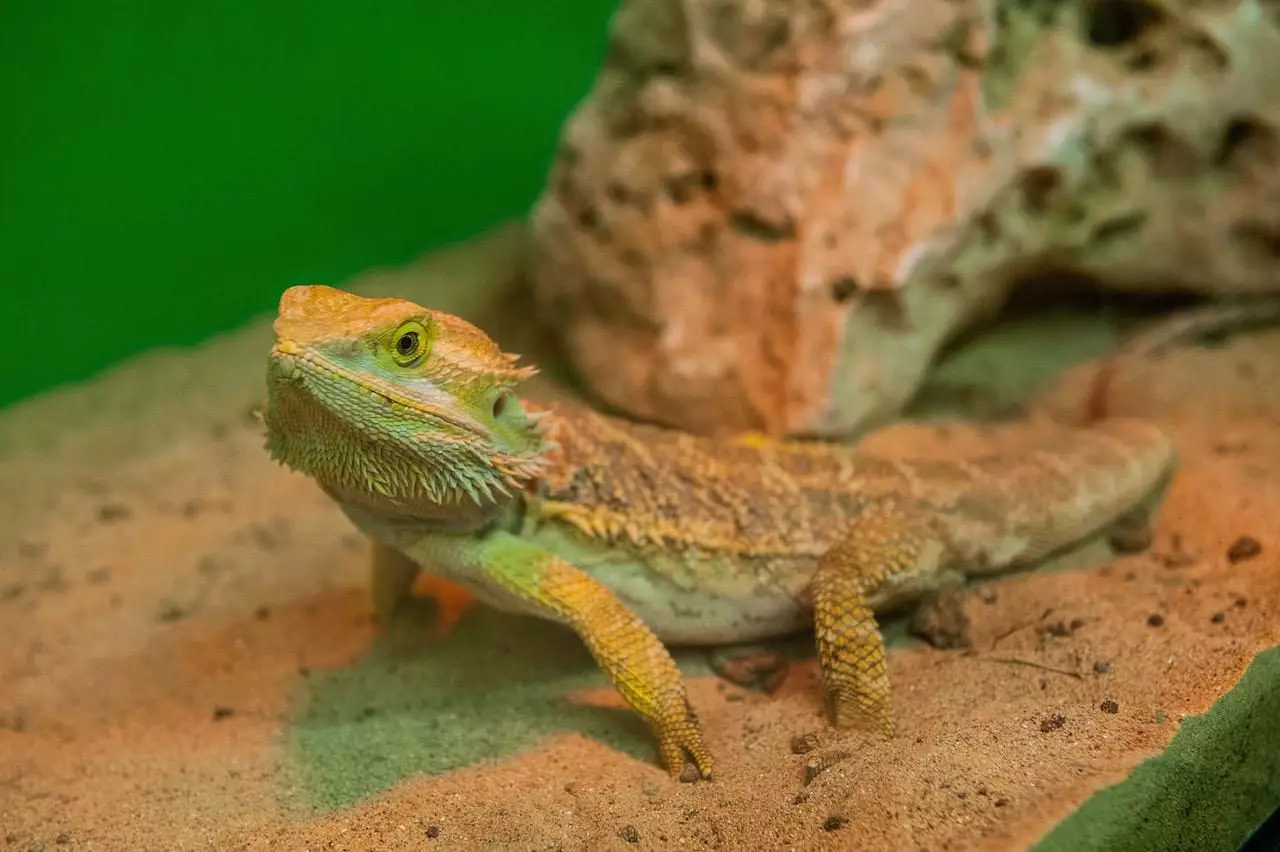Bearded dragons, affectionately known as “beardies,” are captivating reptiles that have become increasingly popular as pets. Originating from the sun-kissed continent of Australia, these lizards are known for their striking appearance, social nature, and unique behaviors. Understanding how to properly care for a bearded dragon is crucial for ensuring a happy, healthy pet. This guide will delve into the essential aspects of bearded dragon care, touching on their biology, habitat needs, dietary requirements, and common health concerns.
Bearded dragons come in various colors and patterns, but they typically feature a light tan to brown base with distinctive spines that form a collar around the neck. These spines, usually lying flattened against the body, stand up dramatically when the bearded dragon feels threatened, serving as a defense mechanism. Adult bearded dragons can reach lengths of 16 to 24 inches and have a robust build, characterized by a thick tail and a rounded body. Despite their wild instincts, bearded dragons tend to be docile in captivity, making them ideal for both novice and seasoned reptile owners.
Creating a suitable habitat for your bearded dragon is essential for its well-being. An enclosure for a single adult should ideally be between 55 to 75 gallons, and this housing must have a secure mesh top to prevent escape. Young bearded dragons can start in smaller tanks, but they will require larger enclosures as they grow. These lizards are semi-arboreal by nature, meaning they appreciate climbing opportunities. Therefore, providing branches, logs, and rocky outcrops in their habitat is vital for encouraging natural behavior.
Temperature regulation is another critical aspect of bearded dragon care. A temperature gradient should be established within the tank, ranging from a cooler side at 80-85°F to a basking area reaching 95-105°F. At night, temperatures can drop to about 65-70°F. Proper heating can be managed with incandescent bulbs, heat mats, or ceramic heaters, but careful monitoring is imperative. Thermometers placed strategically in the tank will help ensure the environment remains ideal for your pet.
Bearded dragons also require adequate UV lighting for their health. UVB light helps them synthesize vitamin D3, essential for calcium absorption. Specialized fluorescent bulbs that emit UV rays are readily available, but these lights must be placed appropriately so that your dragon can bask within 12 inches of them. To maximize the benefits, ensure the light passes through a mesh top, as glass filters out UV radiation.
Moreover, maintaining a moderate humidity level of 35% to 40% is crucial to replicate their natural arid surroundings. In regions with higher humidity, misting the habitat occasionally may be necessary. Using a hydrometer can aid in monitoring this aspect of their environment.
The dietary needs of bearded dragons are diverse and require thoughtful consideration. In the wild, these omnivorous lizards consume insects, smaller animals, and a variety of vegetation. In captivity, it’s important to provide a diet that mimics this. Young bearded dragons should be fed several times a day, focusing predominantly on protein-rich insects such as crickets, worms, and roaches, while adults can enjoy a wider range of insects alongside a mix of leafy greens and vegetables.
Calcium supplementation is crucial to prevent metabolic bone disease, a condition caused by imbalanced nutrient intake. A healthy diet should consist of gut-loaded insects dusted with calcium powder. Additionally, providing fresh water in a shallow dish will help keep your bearded dragon hydrated.
Despite their hardiness, bearded dragons can face several health issues. Metabolic bone disease is one of the most serious ailments, driven primarily by insufficient calcium. Respiratory infections, often identified by wheezing or mucus discharge, can also occur. Moreover, digestive problems, especially impaction from inappropriate dietary choices, can lead to severe consequences. Therefore, monitoring your bearded dragon’s feeding habits and general health is of utmost importance.
If you notice any unusual behavior, such as lethargy or changes in appetite, it’s vital to consult an exotic veterinarian. Regular baths in warm water can also aid in hydration and shedding.
Bearded dragons can make wonderful companions, offering both their owners and families a unique bonding experience. Their manageable size, captivating behaviors, and relatively straightforward care requirements cater to pet enthusiasts of all experience levels. By providing a suitable environment, a balanced diet, and regular veterinary care, you can enjoy the company of these remarkable reptiles for many years. Whether you find joy in their playful antics or calm demeanor, bearded dragons undoubtedly bring a special touch of nature into the home.

